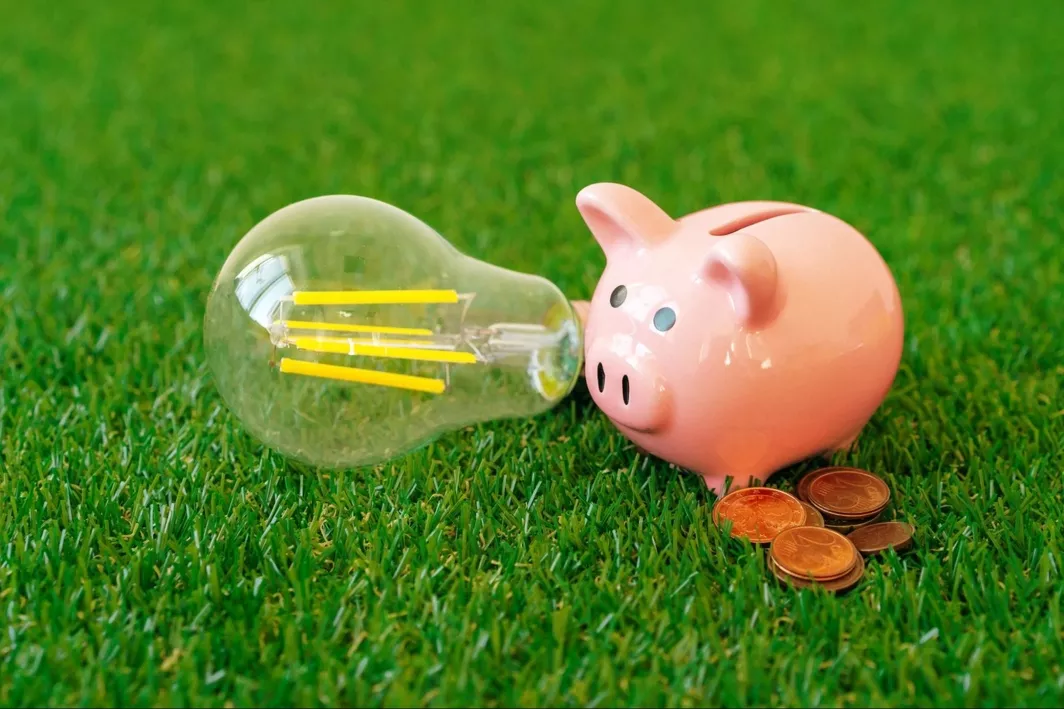Energy Saving Tips That Help You Save Money

As a homeowner in the great state of Texas, you're well aware of the unique challenges of managing your household energy costs. With sweltering summers and unpredictable weather, it's no surprise that your energy bills can sometimes skyrocket.
Fortunately, there are plenty of effective strategies to help you save money. In this blog, we'll explore various energy-saving tips tailored for Texas homeowners:
- Seal your home’s envelope
- Invest in energy-efficient appliances
- Optimize your HVAC system
- Consider investing in HVAC upgrades
- Windows and ventilation tips
- Adjust water heater settings
To learn more, you can also check out our blog, “Why Texas Electricity Bills are So High and How to Reduce Them.”
Trust Jon Wayne for energy-saving HVAC maintenance, thermostat installations, smart home automation, and more!
Our commitment to speedy response times, honest advice, and good old-fashioned service make us the go-to choice for HVAC maintenance in San Antonio. Schedule a tune-up now or join our 5-Star Service Club for annual maintenance. We’ll help you enjoy a more comfortable home with the greatest energy savings possible. We can also provide expert guidance on installing a smart thermostat, smart home automation, and other energy-saving tips outlined in this blog.
Seal Your Home's Envelope
The first step to reducing energy costs is ensuring your home is properly sealed. In Texas, this means keeping the hot and humid air out during the summer and preventing heat from escaping during the winter. Start by checking for air leaks around doors, windows, and other openings. Use weatherstripping or caulking to seal any gaps you find. Proper insulation is crucial, too, so consider upgrading your attic and wall insulation to keep your home temperature stable.
Invest in Energy-Efficient Appliances
If you have older appliances in your home, they might be costing you more in energy bills than you realize. Upgrading to energy-efficient models can lead to significant savings over time. Look for appliances with the ENERGY STAR label, as they meet high energy efficiency standards. This is especially important for large energy consumers like refrigerators, air conditioners, and water heaters.
Check out our blog, “Guide to Home Improvement Rebates, Incentives & Tax Credits in Texas,” to learn more about saving money through energy-efficient appliances.
Optimize Your HVAC System
Texas summers can be brutal, and your HVAC system has to work hard to keep your home comfortable. Here are some tips to optimize your HVAC system and save on energy:
- Regular Maintenance: Schedule annual HVAC maintenance with a professional like Jon Wayne Service Company. Routine check-ups ensure that your system runs efficiently, reducing energy consumption and extending its lifespan.
- Programmable Thermostat: Invest in a programmable or smart thermostat. These devices allow you to set specific temperature schedules, which can help you avoid running your HVAC system when you don't need it.
- Replace Air Filters: Clean or replace your HVAC air filters regularly. Dirty filters restrict airflow, causing your system to work harder and use more energy.
Consider Investing in HVAC Upgrades
Heat Pump Installation
Heat pumps are a highly efficient and versatile heating and cooling solution for Texas homeowners. These systems work by transferring heat between your home and the outdoors, making them ideal for our climate. Here's how they can save you money:
- Energy Efficiency: Heat pumps can provide both heating and cooling using less electricity, which translates to lower energy bills. In Texas, where air conditioning is a necessity for a significant portion of the year, this efficiency can result in substantial savings. So, if you’re wondering how to save energy with AC, a heat pump is a great option.
- Lower Operating Costs: While initial installation costs for a heat pump may be higher than traditional HVAC systems, they make up for it with lower operating costs. In the long run, you'll recoup your investment through reduced energy bills.
- Year-Round Comfort: Because they can efficiently cool your home in the summer and keep it warm in the winter, heat pumps are a versatile year-round solution.
- Environmental Benefits: Heat pumps are environmentally friendly because they don't rely on burning fossil fuels to generate heat. By using electricity to transfer heat, they reduce your carbon footprint and contribute to a greener future.
Zone Control System
Zone control systems take energy savings to the next level by allowing you to customize the temperature in different areas of your home. Here's how they can help you save money in Texas:
- Optimized Comfort: In a typical home, not all rooms have the same heating and cooling needs. With a zone control system, you can customize the temperature in individual rooms or zones, ensuring that you're only using energy where it's needed. This prevents overcooling or overheating in unused spaces.
- Reduced Energy Waste: Traditional HVAC systems treat your entire home as a single zone, which can lead to energy waste. Zone control systems enable you to target specific areas, directing conditioned air only where necessary. This can result in significant energy savings, especially in larger homes.
- Cost Savings: When you're not heating or cooling every room in your home to the same temperature, you'll notice a decrease in your energy bills. Zone control allows you to optimize your energy consumption, reducing waste and ultimately saving you money.
- Extended Equipment Lifespan: Since your HVAC system doesn't have to work as hard to maintain the desired temperature throughout your home, it experiences less wear and tear. This can extend the lifespan of your equipment, reducing the need for costly repairs or replacements.
Upgrade Your Lighting
Looking for winter energy-saving tips? Consider your lighting. Traditional incandescent light bulbs are inefficient and produce excess heat, which can make your home even hotter during the summer. Replace them with LED or CFL bulbs, which are more energy-efficient and last much longer. You'll save on electricity during the colder months and reduce your cooling costs in the summer because these bulbs emit less heat.
You might also consider investing in smart home automation that allows you to monitor and control your entire home– including your lighting, HVAC system, and more. Better still, all new smart home customers are automatically enrolled in Jon Wayne’s 5-Star Service Club for one year, giving you a year of free HVAC maintenance. A win-win!
Windows and Ventilation
Upgrade Your Windows
Windows are a critical component of your home's insulation. If your windows are old and single-pane, they could be letting in excessive heat during the summer and allowing heat to escape during the winter. Consider upgrading to energy-efficient, double-glazed windows to improve insulation and reduce energy costs.
Properly Ventilate Your Home
Proper ventilation is crucial in Texas, where indoor air quality can become an issue. Ventilation helps remove pollutants and excess moisture from your home. Use exhaust fans in your kitchen and bathroom to reduce humidity and heat build-up. Additionally, consider a whole-house ventilation system to maintain air quality while reducing the strain on your HVAC system.
Make Use of Ceiling Fans
Looking for energy-saving tips for summer? Ceiling fans are a cost-effective way to keep your home comfortable during the hot Texas summers. They help distribute air evenly, making it feel cooler without having to lower the thermostat. Just remember to turn them off when you leave a room to save on electricity.
Adjust Your Water Heater Settings
Lastly, your water heater can be a major energy consumer in your home. Lower the temperature on your water heater to around 120 degrees Fahrenheit to save energy without sacrificing comfort. If you have an older water heater, consider upgrading to a tankless one, which heats water on demand and can be more energy-efficient.
Ready to save on energy costs? Turn to the pros at Jon Wayne!
Implementing these energy-saving tips can significantly reduce your energy bills and make your home more comfortable. However, one of the most crucial steps you can take is scheduling regular HVAC maintenance. This ensures that your heating and cooling systems run at peak efficiency, saving you money both now and in the long run. Schedule a comprehensive tune-up with Jon Wayne’s expert technicians today, and we’ll help you keep your HVAC system in tip-top shape!
Want a quote for a heat pump, zone control system, smart home system, or windows installation? We offer free in-home estimates with upfront and honest pricing, including financing options!

